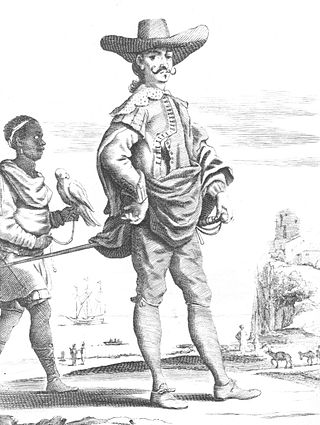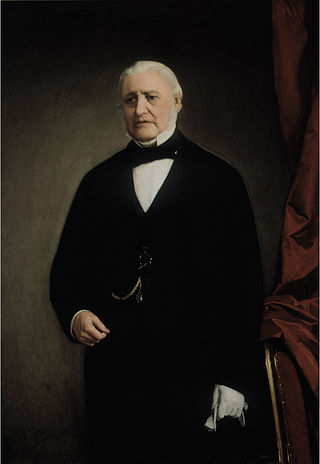
Camilo José Cela y Trulock, 1st Marquess of Iria Flavia was a Spanish novelist, poet, story writer and essayist associated with the Generation of '36 movement.

An hidalgo or a fidalgo is a member of the Spanish or Portuguese nobility; the feminine forms of the terms are hidalga, in Spanish, and fidalga, in Portuguese and Galician. Legally, an hidalgo is a nobleman by blood who can pass his noble condition to his children, as opposed to someone who acquired his nobility by royal grace. In practice, hidalgos enjoyed important privileges, such as being exempt from paying taxes, having the right to bear arms, having a coat of arms, having a separate legal and court system whereby they could only be judged by their peers, not being subject to the death sentence unless it was authorized by the king, etc.

Francisco de Asís was King of Spain as the husband of Queen Isabella II from their marriage in 1846 until Isabella's deposition in 1868. Francisco and his wife were double first cousins, as their fathers were brothers and their mothers were sisters. Isabella was deposed in the Glorious Revolution of 1868, but the monarchy was restored under their son Alfonso XII in 1874.

Infanta Amalia of Spain was the youngest daughter of Infante Francisco de Paula of Spain. Her eldest brother, Francisco de Asís married Queen Isabella II of Spain, who was Amalia's first cousin. She was one of only two of five sisters who made a royal marriage. In 1865 she married Prince Adalbert of Bavaria, a son of King Ludwig I of Bavaria. Upon her marriage she moved to Munich, where she spent the rest of her life. However she remained attached to her native country and was instrumental in arranging the marriage of her eldest son Prince Ludwig Ferdinand of Bavaria with her niece Infanta Paz of Spain.

Infante Francisco de Paula of Spain was an Infante of Spain and the youngest son of Charles IV of Spain and Maria Luisa of Parma. He was a brother of Ferdinand VII, and the uncle and father-in-law of Isabella II.
Mosen Vicente Bru (1682–1703) was a Spanish painter. He was born at Valencia. He was the pupil of Juan Conchillos. He painted for the churches in his native city, including a St. Francisco de Paula, a Baptism of Christ by St. John, and an All the Saints for the church of San Juan del Mercado.

Infanta Maria Cristina of Spain and Portugal was a daughter of Infante Francisco de Paula of Spain and his wife Princess Luisa Carlotta of the Two Sicilies. She became an Infanta of Portugal by her marriage to Infante Sebastian of Portugal and Spain.

Francisco Javier de Istúriz y Montero was a Spanish politician and diplomat who served as the Prime Minister of Spain. He also served as the President of the Senate and President of the Congress of Deputies several times.

Don Ildefonso Díez de Rivera y Muro was a Spanish noble and politician who served as Minister of State in 1836 and as President of the Senate.

Infante Enrique, Duke of Seville, was an Infante of Spain and a member of the Spanish branch of the House of Bourbon. He was a grandson of Charles IV of Spain and became the first Duke of Seville in 1823. He was known for his progressive, even revolutionary, ideas during the reign of his double first cousin and sister-in-law, Isabella II of Spain.
Espasa-Calpe was a Spanish publisher which existed during the 20th century. It was created in 1925, by the union of Editorial Calpe, founded by Nicolás María de Urgoiti in 1918, and Editorial Espasa, founded by José and Pau Espasa i Anguera in 1860.
Enciclopedia moderna is a Spanish encyclopedia published in Madrid by Francisco de Paula Mellado between 1851 and 1855. It has 34 volumes and it was the first "great" Spanish encyclopedia.
Colonel Tomás Luís Osório was a Portuguese military figure. He is best known for leading troops against Pedro de Cevallos in the southern Brazil/Uruguay region in the 1760s. On October 6, 1762, he began to rebuild the Fortaleza de Santa Teresa. On April 19, 1763, Pedro de Cevallos captured the fortress, taking Osório prisoner along with 25 officers. After the war, Osório was submitted to a council of war in Portugal and accused of having favored the Spanish conquest, and was subsequently hanged in Lisbon. His widow then presented evidence that showed the error of the indictment.
Maria of Portugal was a Portuguese royal, daughter of Infante Afonso of Portugal and his wife Violante Manuel.
The following is a timeline of the history of the city of Matanzas, Cuba.

Pedro de Medina was a Spanish cartographer and author of navigational texts. His well-known Arte de navegar was the first work published in Spain dealing exclusively with navigational techniques.

Infanta Isabel Fernanda of Spain was a Spanish princess and the eldest child of Infante Francisco de Paula of Spain and of his niece, Princess Luisa Carlotta of the Two Sicilies.

Infanta Luisa Teresa of Spain was a Spanish infanta.
Jerónimo Cortés was a Spanish mathematician, astronomer, naturalist and Valencian compiler.
Alessandro Pico della Mirandola, known under the pseudonym Abate Pico della Mirandola, was an Italian nobleman and politician, and the last male descendant of the Pico della Mirandola lineage.











